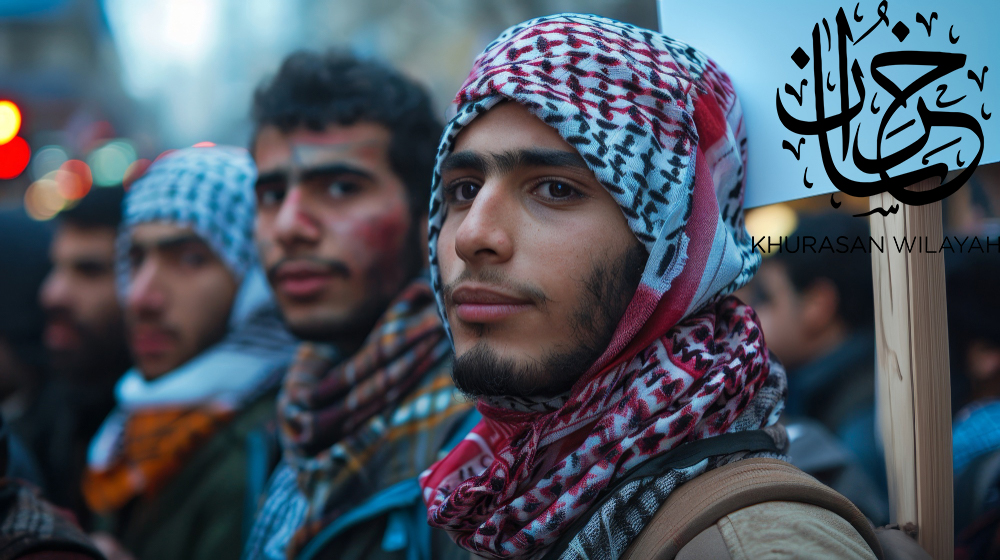Spanish state security forces have detected an alarming presence: members of the Islamic State Khorasan Province (ISKP) are operating on Spanish soil. This terrorist group is currently considered the greatest jihadist threat in Europe. As early as 2023, police authorities identified initial ISKP members, and last year there were at least two arrests related to this dangerous organization. This is according to the latest annual report from the Memorial Centre for Victims of Terrorism within the Spanish Ministry of Interior.
2024 Terrorism Report: Arrests and ISKP Connections
The report on the terrorism situation in Spain for 2024 shows that a total of 51 individuals were arrested on suspicion of belonging to or collaborating with the Islamic State. Two of these arrests were directly linked to the Central Asian offshoot Khorasan. One of those arrested is an 18-year-old man from Barcelona, who disseminated ISKP propaganda and shared instructions for making explosives. He also maintained international contacts with imprisoned members of the organization in Sweden and Canada.
ISKP: A Global Danger with a Focus on Europe
The Islamic State Khorasan Province (ISKP) is an active branch of the IS, operating mainly in Afghanistan, Pakistan, Russia, and some Central Asian countries. However, its cells have long spread to Europe, posing the primary threat from an organized terrorist group there. The Spanish Ministry of Interior already emphasized last June that ISKP is the “most active branch of the Islamic State and the one that poses the greatest threat in the European context” when a large online propaganda structure of Daesh and ISKP was dismantled in Spain. The German Chancellery also warns of ISKP as the “greatest Islamist threat in Germany” and confirms the intensive monitoring of the group by security authorities. Although most terrorist attacks in Europe last year were carried out by lone actors, the Centre for Victims of Terrorism highlights that “quite a few police operations were directed against ISKP cells or militants.” In addition to Spain, at least seven other countries have “carried out actions against members of this group.”
Infiltration via Ukraine: A Worrying Development
The Islamic State of Khorasan emerged ten years ago in Central Asia, but has steadily expanded its reach, extending its tentacles into Europe, Iran, Turkey, and even the United States and Canada. The intensity of its activities is continuously increasing. Particularly shocking was the death of four Spanish citizens last May, who were killed in Afghanistan by ISKP members when their bus came under machine gun fire in the city of Bamiyan. Two months earlier, ISKP carried out its most devastating attack in Europe to date at the Moscow Crocus City Hall, killing 144 people and injuring over 500.
Europol strongly warns of the organization’s “growing influence” in European countries and its “greater potential to orchestrate coordinated terrorist attacks on EU soil.” Of particular concern is the finding that many ISKP members have entered Europe via Ukraine.
The “Digital Caliphate”: Propaganda as a Weapon
The rapid spread of this Daesh branch in the West is largely due to its sophisticated internet propaganda and intensive use of social networks. Through these channels, ISKP successfully spreads its messages in numerous languages and recruits volunteers worldwide, especially young people. The Centre for Victims of Terrorism states: “Its activities in networks have enabled it to create a kind of digital caliphate, while developing a strategy that combines actions at regional and global levels.”
In addition to this de facto “digital caliphate,” the Islamic State of Khorasan pursues the overarching goal of establishing a large Islamic caliphate in Central Asia, in the historical region of Greater Khorasan. This region includes areas of present-day Iran, Afghanistan, Tajikistan, Turkmenistan, Uzbekistan, Kyrgyzstan, and Kazakhstan. This caliphate would enforce a radical interpretation of Sharia law, similar to that imposed by the Daesh parent organization in Syria and Iraq between 2014 and 2019. As a radical Salafist movement, ISKP promotes global jihad against non-Muslims and advocates armed struggle against foreign interests.
Leader in the Crosshairs: The Hunt for Sanaullah Ghafari
Although the structure of ISKP is complex and its leadership often opaque, the US government identifies Sanaullah Ghafari as one of its leaders. Despite reports suggesting his death at the hands of the Taliban (enemies of ISKP), the US has offered a $10 million reward for information leading to his neutralization. Born in Afghanistan in 1994, Ghafari is described by the US State Department as an “experienced military leader” involved in urban guerrilla operations in Kabul, the planning of suicide bombings and complex attacks, and financing activities.
Gaza War: Breeding Ground for Radicalization
The report from the Centre for Victims of Terrorism also examines the impact of the Gaza War. According to experts, Israeli bombings have fueled “radicalization” and created an ideal breeding ground for the spread of jihadist messages to attract new followers. The war has been “a factor in the radicalization of people who have planned or carried out attacks in European countries,” it states. Europol also confirms that in the wake of the Gaza War, “online calls by jihadists to attack Jewish and Israeli interests and avenge the deaths of Palestinians quickly spread.”




